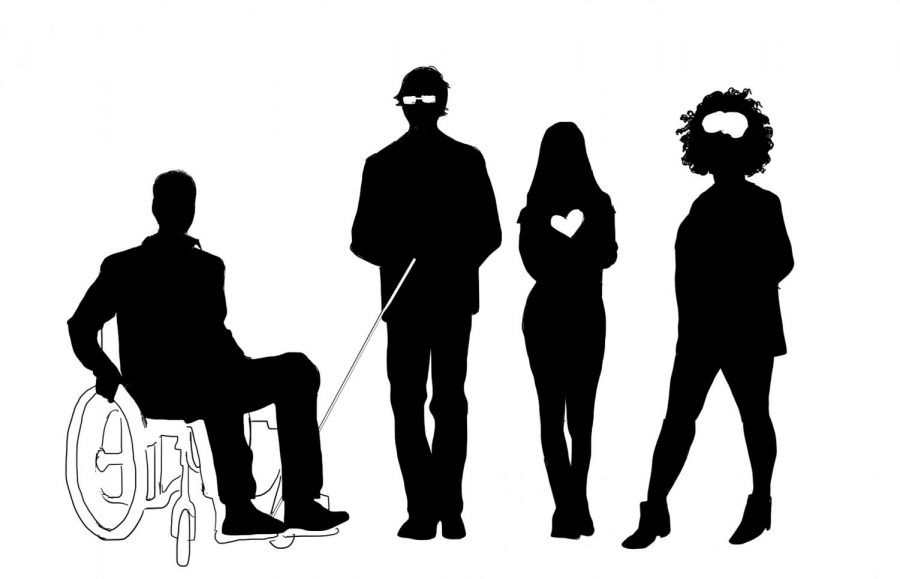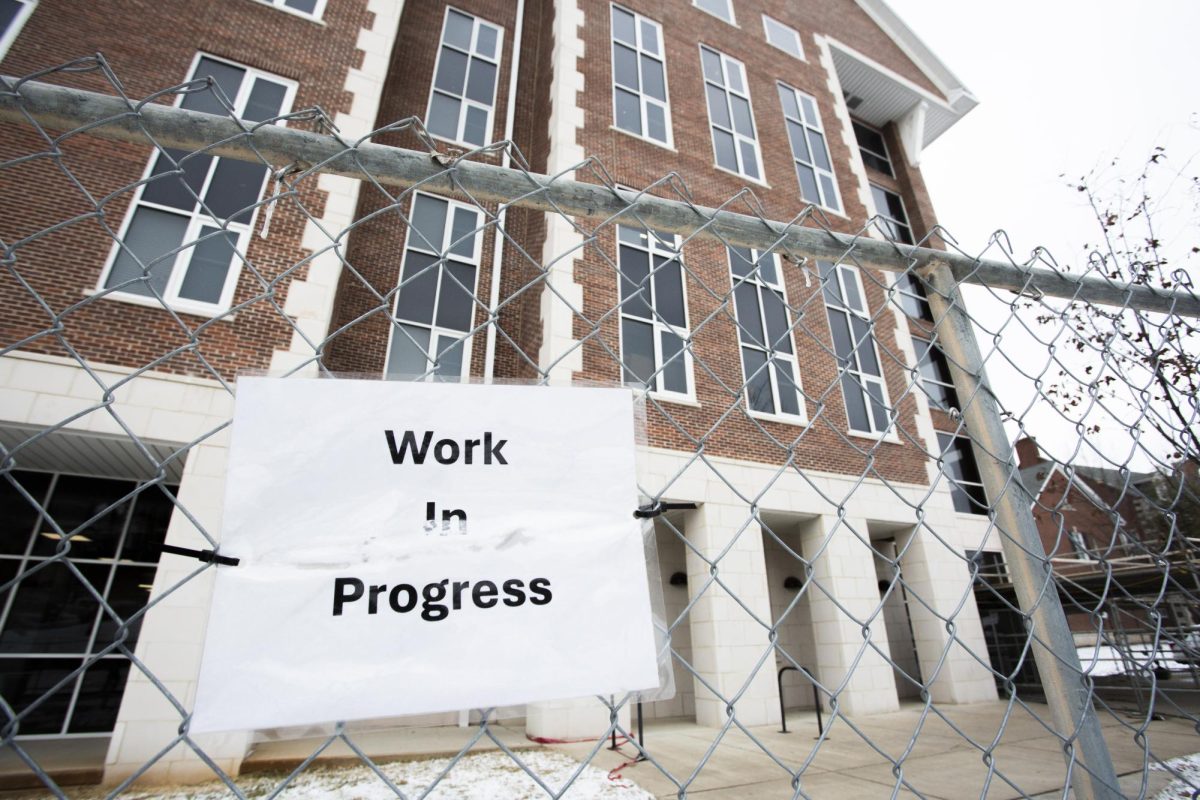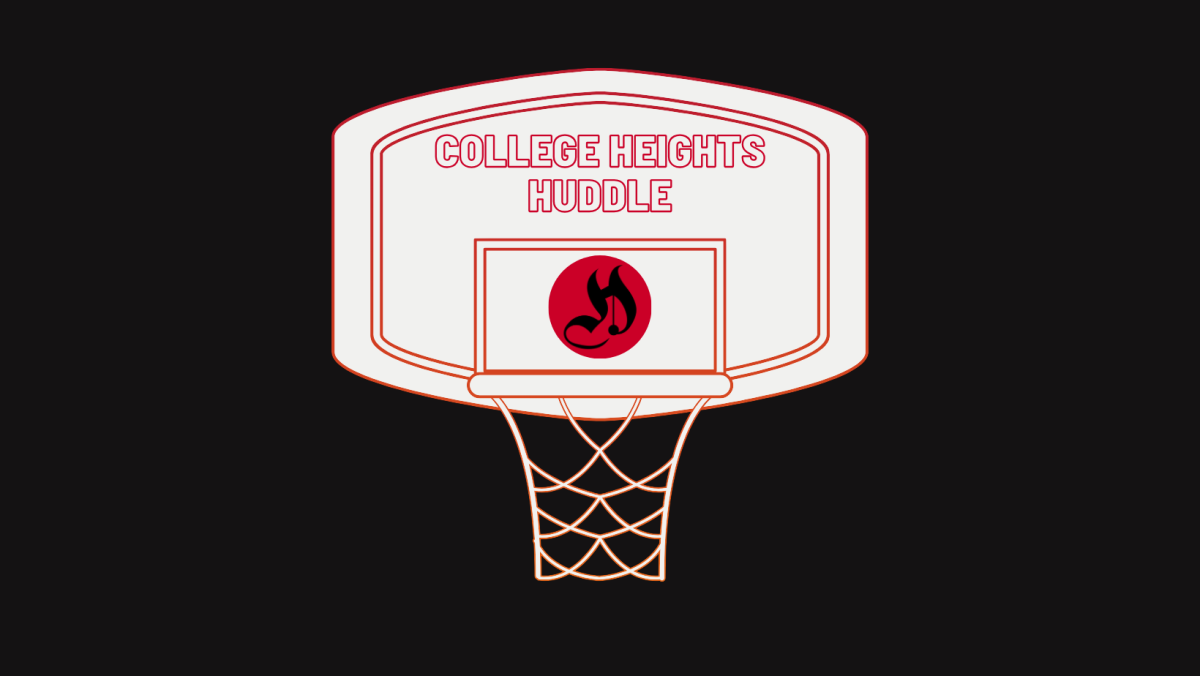Students reflect on disability awareness month
October 29, 2018
For students with disabilities, college can be especially challenging. October is National Disability Awareness Month, a time of year that, according to the National Consortium on Racial and Ethnic Fairness in the Courts website, aims to bring to light the “indispensable contributions people with disabilities have made and will continue to make” in our society and economy as well as to remove obstacles often faced by disabled people.
“I think Disability Awareness Month is a really crucial time for everyone to educate themselves more about disabilities,” Olive Hill senior Alexandria Knipp said. “Even if someone doesn’t look sick physically, they may not feel well, so it’s always better to give people you know the same respect you would to others.”
Knipp, who has three invisible disabilities, said one of the most difficult parts of her conditions is their inconspicuousness.
“I suffer from what doctors refer to as ‘invisible disabilities,’ so when you look at me, you can’t see immediately, you know, what is wrong with me,” Knipp said. “It means that others need to confront their own perceptions about what disabilities look like.”
Knipp said invisible disabilities can be especially hard to cope with because of a lack of acknowledgment from others who might see people with such disabilities using accommodations and assume they’re taking advantage of the system.
“People around you may verbally question your disability in a way that is difficult,” Knipp said.
“It makes you question, ‘Am I really sick? Do I really deserve to receive accommodations for what’s going on?’”
Knipp said another aspect of her disabilities is the severity of her symptoms varies from day to day. During college, she pointed out a full social calendar is often the norm, but it can be hard for someone with an invisible disability to attend every event.
“Your friends always invite you to go out, and a lot of times, you have to say no because you don’t feel well,” Knipp said.
Knipp’s advice to the friends of people with disabilities is to be understanding and keep including them in plans.
“Don’t stop inviting them out, because even if they can’t go today, they might want to go tomorrow,” she said. “Realize they’re not saying no because they don’t want to hang out. Maybe they don’t physically feel well enough to go.”
Jaylan Ford, a Glasgow senior and sociology major who suffers from attention deficit and hyperactivity disorder, anxiety and depression said she wasn’t officially diagnosed until her sophomore year of college but began experiencing symptoms far earlier during high school.
“After reading some articles in medicine journals and a visit to my doctor, I found out that I have chronic depression and test anxiety that is caused by ADHD,” Ford said. “My high school tended to stigmatize those disabilities.”
Ford said her depression sometimes makes simple acts like getting out of bed hard, and it affects her focus in class. Luckily, she said, she’s received more support at WKU and appreciates the availability of accommodations for “both mental and physical disabilities.”
Glasgow senior Tiffany Ballard was diagnosed with dyslexia in her last year of high school. She said she had problems at school from an early age, but they were mostly ignored by her teachers because she maintained a good GPA.
“Since I was making A’s and B’s in all my classes, and I was taking AP and honors classes, my teachers just didn’t do anything about it,” Ballard said.
While in high school, Ballard said one teacher did bring up the issue, but the school administration took no action to address it.
Now, Ballard serves on the board of the Kentucky International Dyslexia Association, a nonprofit organization that promotes dyslexia research and education. Ballard said dyslexia is common, affects about one in five people and can affect reading, spelling and math skills.
Ballard said greater support from educational institutions is important to encourage dyslexic students’ success. However, she said WKU’s Student Accessibility Resource Center does a great job with student advocacy.
“I think if we could have more professors here willing to help and be more considerate and willing to work with us, it would be a whole lot better,” Ballard said.
Knipp said she’s also found SARC incredibly helpful.
“They provide a lot of resources for people who are struggling with how to accommodate their disabilities, especially when they’re not visible,” Knipp said.
Brendan Ward, a Memphis senior, also suffers from dyslexia and ADHD. He said he found his schools’ willingness to work with him and provide reasonable accommodations unsatisfactory.
“From the third grade all the way to the twelfth grade, even though I was diagnosed by a psychiatrist, I was never able to receive services from any of the schools that I went to,” Ward said.
Despite a professional diagnosis, Ward was denied his request for extra time and a distraction-free testing space on the ACT by his high school. He said his ADHD causes test anxiety, which makes taking exams with other students difficult. Now, with the help of SARC, he’s able to take tests for his classes in a quiet environment and receives extra time allowances for his dyslexia.
Justin Harmon, an exercise science major from Clarksville, Tennessee, was diagnosed with cerebral palsy when he was a year old.
“[Cerebral palsy] has affected my life in a lot of ways,” Harmon said in an email. “When I was younger, I wonder why my right hand is different than my left hand and why I walk funny.”
Harmon talked about how childhood teasing exacerbated the problems he had fitting in.
“Kids at school told me I’m dumb … [I] was picked on as a kid,” Harmon said. “People would stare, and it made my self-esteem worse.”
Ward said he had similar experiences with bullying as a result of his disabilities but believes people with disabilities should remain positive.
“For people with disabilities that might be scared to share their voices, I would say, ‘don’t suffer alone,’” Ward said. “You should be able to feel confident about having a disability no matter what other people are saying about you or how they’re treating you.”
Features reporter Sarah Yaacoub can be reached at 270-745-6291 and sarah.yaacoub214@topper.wku.edu. Follow her on social media at @sarah.yaacoub.














